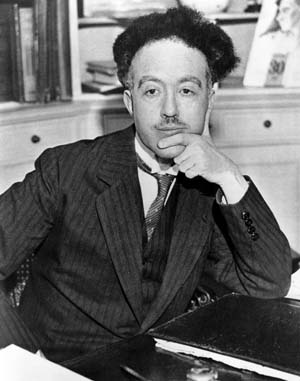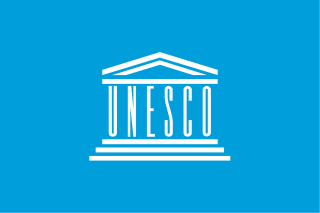
Caracas, officially Santiago de León de Caracas (CCS), is the capital and largest city of Venezuela, and the center of the Metropolitan Region of Caracas. Caracas is located along the Guaire River in the northern part of the country, within the Caracas Valley of the Venezuelan coastal mountain range. The valley is close to the Caribbean Sea, separated from the coast by a steep 2,200-meter-high (7,200 ft) mountain range, Cerro El Ávila; to the south there are more hills and mountains. The Metropolitan Region of Caracas has an estimated population of almost 5 million inhabitants.

Simón José Antonio de la Santísima Trinidad Bolívar Palacios Ponte y Blanco was a Venezuelan military and political leader who led what are currently the countries of Colombia, Venezuela, Ecuador, Peru, Panama, and Bolivia to independence from the Spanish Empire. He is known colloquially as El Libertador, or the Liberator of America.

Arturo Uslar Pietri was a Venezuelan intellectual, historian, writer, television producer, and politician.

The cultures of Venezuela are diverse and complex, influenced by the many different people who have made Venezuela their home. Venezuela has distinctive and original art, literature and music.

The International José Martí Prize serves to "promote and reward an activity of outstanding merit in accordance with the ideals and spirit" of Cuban independence leader, thinker, and poet José Martí".

The Kalinga Prize for the Popularization of Science is an award given by UNESCO for exceptional skill in presenting scientific ideas to lay people. It was created in 1952, following a donation from Biju Patnaik, Founder President of the Kalinga Foundation Trust in India.

Gustavo Adolfo Dudamel Ramírez is a Venezuelan conductor and violinist. He is currently music director of the Simón Bolívar Symphony Orchestra, the Los Angeles Philharmonic, and the Paris Opera. He is scheduled to become music director of the New York Philharmonic in 2026.

José Antonio Abreu Anselmi was a Venezuelan orchestra conductor, pianist, economist, educator, activist, and politician best known for his association with El Sistema. He was honored with the 2009 Latin Grammy Trustees Award, an honor given to people who have contributed to music by the Latin Academy of Recording Arts & Sciences.

The National Pantheon of Venezuela is a final resting place for national heroes. The Pantheon was created in the 1870s on the site of the ruined Santísima Trinidad church from 1744 on the northern edge of the old town of Caracas, Venezuela.
The UNESCO Science Prize is a biennial scientific prize awarded by the United Nations Educational, Scientific and Cultural Organization (UNESCO) to "a person or group of persons for an outstanding contribution they have made to the technological development of a developing member state or region through the application of scientific and technological research ."

José Cristóbal Hurtado de Mendoza y Montilla, commonly known as Cristóbal Mendoza, was a Venezuelan lawyer, politician, writer, and academic. Cristobal is best known for serving as the first official President of Venezuela from 1811 to 1812. After earning a master's degree in philosophy in Caracas and his doctor utriusque juris in the Dominican Republic, early in his professional career he served in various law firms in Trujillo, Mérida, and Caracas. He moved to Barinas in 1796 to practice law, and in 1807 was elected Mayor of Barinas. In 1810, Mendoza joined the insurgent movement started by wealthy Caracan citizens against the Spanish crown, and in 1811 was elected to represent the province of Barinas in the newly founded Constituent Congress of Venezuela. Days later he was appointed the first president of the First Republic of Venezuela, a role he shared as part of a triumvirate. Until his term ended in March 1812, Mendoza began the war for independence against the parts of Venezuela that still supported the Spanish monarchy, authored the Venezuelan Declaration of Independence, and also took part in constructing the first Constitution of the Republic of Venezuela.

The Simón Bolívar Symphony Orchestra of Venezuela is a Venezuelan orchestra. Named after the Venezuelan national hero Simón Bolívar, it was initially the apex of the nation's system of youth orchestras. By 2011, it was no longer officially a youth orchestra as many of its members remained with the orchestra and the average age had risen to the early 20's. It was replaced as the national youth orchestra by the Teresa Carreño Youth Orchestra.

Maria Guinand is an internationally renowned choral conductor.
Ignacio Rodríguez Iturbe was a Venezuelan hydrologist who was a professor at Texas A&M University.

The United Nations Educational, Scientific and Cultural Organization (UNESCO) is a specialized agency of the United Nations (UN) with the aim of promoting world peace and security through international cooperation in education, arts, sciences and culture. It has 194 member states and 12 associate members, as well as partners in the non-governmental, intergovernmental and private sector. Headquartered in Paris, France, UNESCO has 53 regional field offices and 199 national commissions.

Science and technology in Venezuela includes research based on exploring Venezuela's diverse ecology and the lives of its indigenous peoples.
Simón Bolívar (1783–1830) was a Venezuelan military and political leader.

The Birthplace of Simón Bolívar is a seventeenth-century house in the Venezuelan capital city Caracas where the hero of Venezuelan and Latin American independence, Simón Bolívar, was born. Now a significant tourist attraction, the building is located in a little street off the Plaza San Jacinto, a block east of the Plaza Bolívar. It is one of only a few houses from the colonial era which survive in central Caracas.

The Liberator is a 2013 Spanish–Venezuelan historical drama film directed by Alberto Arvelo, starring Édgar Ramírez as Simón Bolívar. It was screened in the Special Presentation section at the 2013 Toronto International Film Festival. It was selected as the Venezuelan entry for the Best Foreign Language Film at the 87th Academy Awards, making the January Shortlist.















